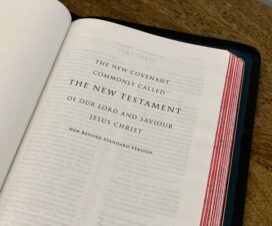
1. In Search of True Blessings
What comes to mind when you hear the word “blessed”? Maybe it’s a big house, a thriving career, or picture-perfect family moments posted on social media with the hashtag #Blessed. Honestly, we all have our own ideas of what it means to be blessed.
But here’s the big question: Does that match up with what God says about blessings?
Let’s dive into the Bible to see how it defines true blessings. Spoiler alert: It might look very different from what we’re used to!
2. Rethinking Blessings: A Biblical View
First things first, blessings aren’t just about material things. Sure, God can bless us with stuff like money, health, or success, but that’s not the full picture. In fact, many of the greatest blessings in the Bible are spiritual. Paul sums it up perfectly: “Blessed be the God… who has blessed us with every spiritual blessing in the heavenly places in Christ” (Eph 1:3).
Take a look at the Beatitudes in Matthew 5:3–12. Jesus’ list of “blessed” people is surprising: the poor in spirit, the mourners, the meek, and even those who are persecuted. Why? Because their rewards aren’t tied to earthly things but to the eternal kingdom of God.
Even the lives of Abraham, Job, and David show us that God’s blessings include His guidance, promises, and presence—not just material wealth. When God promised Abraham that he would be a great nation (Gen 12:2–3), the blessing wasn’t just about land or descendants; it was about being part of God’s plan for the world.
3. Unexpected Blessings: The Hidden Gift of Hardships
Here’s a tough one: Can trials be blessings? The Bible says yes. James writes, “Consider it pure joy, my brothers and sisters, whenever you face trials of many kinds” (James 1:2–4). Why? Because trials produce perseverance, maturity, and a deeper faith.
Look at Joseph’s story. Betrayed by his brothers, sold into slavery, falsely accused, and imprisoned—that doesn’t sound like a blessed life! But through it all, God was working for good. In Genesis 50:20, Joseph tells his brothers, “You intended to harm me, but God intended it for good to accomplish what is now being done, the saving of many lives.”
What about you? Is there a challenge in your life that could be God’s way of shaping you or leading you to something better? Sometimes, blessings come wrapped in hardships.
4. The Example of Jesus: The Ultimate Blessed Life
If we want to understand true blessings, we need to look at Jesus. He didn’t live a life of wealth or comfort, but He lived the most blessed life imaginable. Why? Because His life was perfectly aligned with God’s will.
Jesus’ humility and service are key. Philippians 2:5–11 shows us how He “made Himself nothing” to serve others and glorify God. His teachings in Matthew 6:19–21 remind us to store up treasures in heaven, not on earth, because “where your treasure is, there your heart will be also.”
And of course, the cross—the ultimate act of love and sacrifice—is the greatest blessing of all. Through His death and resurrection, Jesus made it possible for us to have eternal life. Talk about a blessing that lasts forever!
5. How to Seek True Blessings: Practical Steps
So, how do we start looking for the blessings God wants to give us? Here are a few ideas:
- Seek God first. Jesus said it clearly: “Seek first His kingdom and His righteousness, and all these things will be given to you as well” (Matt 6:33). Make God your priority, and the rest will fall into place.
- Practice gratitude. “Give thanks in all circumstances” (1 Thess 5:18). Even when life is hard, look for reasons to be thankful. Start a gratitude journal if it helps!
- Renew your mindset. Paul writes, “I have learned the secret of being content in any and every situation” (Phil 4:11–13). Contentment comes when we trust God to provide what we truly need.
- Invest in relationships. Sometimes, the greatest blessings are the people God puts in our lives. Value them, love them, and serve them.
6. Breaking the Myths About Blessings
Let’s clear up a few common misconceptions:
- Myth 1: Being blessed means being rich. Nope. Plenty of godly people in the Bible were poor or went through tough times (looking at you, Job and Paul). Blessings are about God’s presence and provision, not a fat bank account.
- Myth 2: If life is hard, I must not be blessed. Wrong again. Trials often bring us closer to God and teach us to rely on Him more (Rom 5:3–5).
- Myth 3: Blessings are all about me. Actually, God blesses us so we can bless others. Abraham’s blessing was meant to bless all nations (Gen 12:2–3). How can you use your blessings to make a difference?
7. Being a Blessing to Others
Speaking of making a difference, one of the best ways to experience God’s blessings is to share them. Jesus said, “It is more blessed to give than to receive” (Acts 20:35). Here are a few simple ways to be a blessing:
- Help someone in need. Whether it’s buying groceries for a neighbor or volunteering at a shelter, small acts of kindness go a long way.
- Pray for others. Your prayers can be a huge blessing for someone who’s struggling.
- Encourage someone. A kind word or a listening ear can brighten someone’s day.
8. Conclusion: Living in God’s Blessings Every Day
So, what does it mean to be blessed? It’s not about how much you have but about how much you trust God. True blessings are found in knowing Him, walking with Him, and living out His purposes.
Take a moment to think: What blessings in your life have you overlooked? How can you be a blessing to someone else today? Remember, God’s blessings are all around us. Sometimes, we just need to open our eyes to see them.
And here’s the best part: God’s blessings are available to everyone who seeks Him. That includes you.



